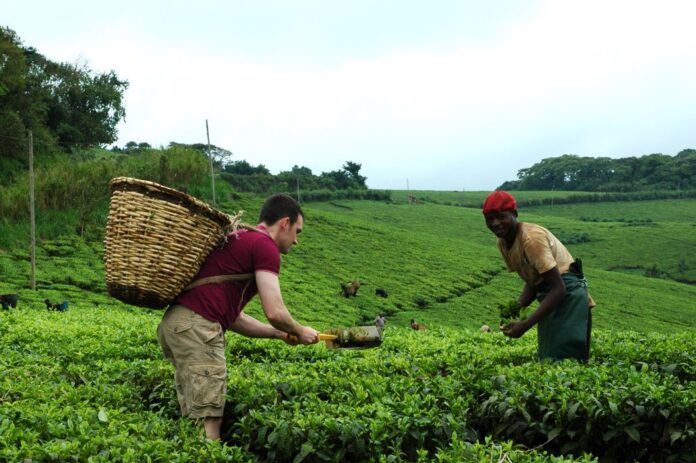Uganda, also referred to as the “Pearl of Africa,” is well known for its excellent land for agriculture because of its rich soils, rolling hills, and temperate temperature.
One of its many riches is tea, a crop that is deeply linked to the history and economy of the nation.
Tea was introduced to Uganda in the early 1900s by British colonialists, who recognized the country’s potential for growing high-quality crops.
Traditional tea-growing districts are Mukono, Buikwe, Mubende, Mityana, and Masaka in the central region; Kyenjojo, Kibale, Hoima, and Kabarole in the western region; and Bushenyi, Buhweju, Kanungu, and Kabale in southwestern Uganda.
Tea has become one of Uganda’s leading exports, alongside coffee and cotton.
Uganda’s equatorial climate, rich in rainfall, moderate temperatures, and volcanic soils, is ideal for tea cultivation, with high-altitude areas producing unique, malty, and floral teas.
Large estates and smallholder farmers both make substantial contributions to Uganda’s tea business, which is a way of life for many tea farmers.
Uganda’s tea farming faces challenges like fluctuating global prices, climate change, and limited access to modern techniques, while small-scale farmers struggle with low incomes.
The government and private sector are promoting value addition through investments in tea processing facilities, enabling farmers to produce high-quality packaged teas for domestic and international markets.
The Uganda Tea Association helps farmers by giving them access to markets and training.
Ugandan tea is gaining global recognition through specialty teas, organic varieties, and innovative marketing strategies, including herbal infusions with indigenous plants.
Uganda’s tea industry is a symbol of resilience and opportunity, providing a lifeline for thousands of families.
With continued investment in agriculture, the tea industry in Uganda has the potential to become a global commodity by combining innovation and tradition, reflecting the very best of Africa in each taste.
As Uganda continues to navigate the complexities of global trade and climate change, the tea industry remains a cornerstone of its agricultural economy. With continued investment in infrastructure, marketing, and sustainability practices, Uganda has the potential to carve out a larger space in the global tea market.
Moreover, as more Ugandans recognize the value of this “green gold,” the industry can continue to provide livelihoods for thousands of families, contributing to rural development and poverty alleviation.
The tea sector, though still facing hurdles, is a symbol of resilience and growth in Uganda’s agricultural narrative.
Uganda’s tea industry, like the plant itself, has deep roots, but it is the future growth—through innovation, sustainability, and global partnerships—that will determine its ultimate success.















